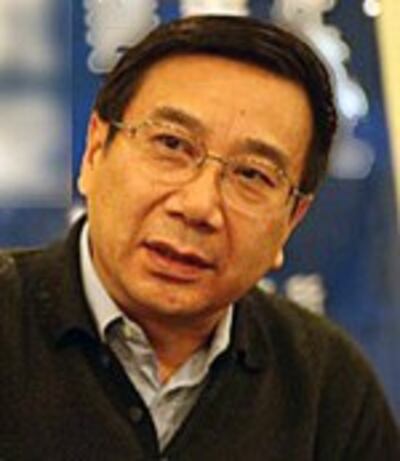
HONG KONG—Top Chinese journalists Li Datong and Lu Yuegang have issued a public letter of protest to their government after they were sacked from the investigative pages of one of the country’s most respected newspapers.
“What do the people want? Press freedom, and the freedom of speech granted to them by the constitution; information that is valuable about the environment they live in, the investigation and uncovering of injustice, support for socially vulnerable groups against the powerful, and the sort of profound reflection needed to ensure the survival of the people,” Li and Lu wrote Friday after an appeal to the Party’s Central Discipline Inspection Commission was turned away.
Li and Lu were removed as editors of Freezing Point, the cutting-edge news supplement to the prestigious China Youth Daily newspaper that was temporarily closed last month for 'rectification.'
They are being transferred to work in the paper’s news research department, which they jokingly referred to in their letter as ‘the warehouse.'
Li's second exile
"History often repeats itself,” Li, who was also sent to work in the news research department following a call for press freedom during the Tiananmen Square protests of 1989, told RFA’s Mandarin service. “This is what we are witnessing.”
“We have not had a vacation in 11 years. Indeed, we need time to recharge, to read, and to write."
Freezing Point will be reinstated without them in March, and one of the first articles it will carry will criticize prominent historian Yuan Weishi, whose article on the official versions of Chinese history sparked the row in the first place.
Lu told RFA that the move had caused great anger among editorial staff at Freezing Point.
"I regard it as political persecution. My Freezing Point colleagues are outraged. They think it's the wrong decision," he said.
Asked how he would respond to foreign affairs spokesman Qin Gang’s comment that Yuan Weishi’s article had hurt the feelings of the Chinese people, Lu replied: "The article was an academic piece. It should be answered with an academic piece."
History professor slams 'excuse'
Yuan said he was keen to respond to the criticism his article had generated.
"The authorities have been looking for an excuse to rectify Freezing Point for a very long time now, and my article gave them that excuse," Yuan told a panel discussion on RFA's Mandarin service.
“Things are pretty terrible now in terms of the government’s attitude to the media,” Yuan said.
"I think this is a terrible thing for the government to have done…But I think I should have the right to reply in the next issue of Freezing Point. I will wait to see if they will let me do that."
Li said he expected the article on Yuan Weishi to be "nonsense."
"It is my belief that no scholar with a conscience would write articles criticizing Mr. Yuan Weishi,” he told RFA reporter Ding Xiao. “They can only get some party punks to write such an article. I am sure the article will be nothing but nonsense."
Lesson for China's media
Li and Lu said top officials appeared particularly angry at the amount of exposure given to the row over Freezing Point in overseas media, and cited their granting of interviews to foreign media organizations as a key factor in the government's decision to transfer them.
Commentators in China and overseas slammed the move.
Freezing Point is one of the most courageous publications in China," U.S.-based commentator Hu Ping said during the panel discussion.
"There are others, but it's definitely up there…This is very obviously a strong blow against press freedom…The future version of Freezing Point is going to be nothing like the old version…effectively Li and Lu are being pushed into a place where there's no room for them to make their views heard. I think this is part of the Party's long-term strategy to suppress press freedom," Hu added.
Beijing-based rights lawyer Pu Zhiqiang said officials were in breach of China’s constitution.
“I think this is a question of the propaganda department being in breach of China’s constitution,” he said. “Clause 35 of the constitution of the People’s Republic of China protects freedom of speech and freedom of the press, and this action is definitely in contravention of that clause.”
“This isn’t about the law…and it’s not about silencing Li Datong and Lu Yuegang. This is about the central propaganda department letting the entire media industry in China know exactly how far it is permitted to go, exactly what they can and can’t publish,” Pu added.
He called on Freezing Point to allow Yuan to publish a response to the criticism of him. "We don't want it turned into something tepid. No longer a hot topic, still less a freezing point," he said.
Original reporting in Mandarin by Ding Xiao, Ke Hua and Xia Aiming. RFA Mandarin service director: Jennifer Chou. Translated and written for the Web in English by Luisetta Mudie. Edited by Sarah Jackson-Han.
